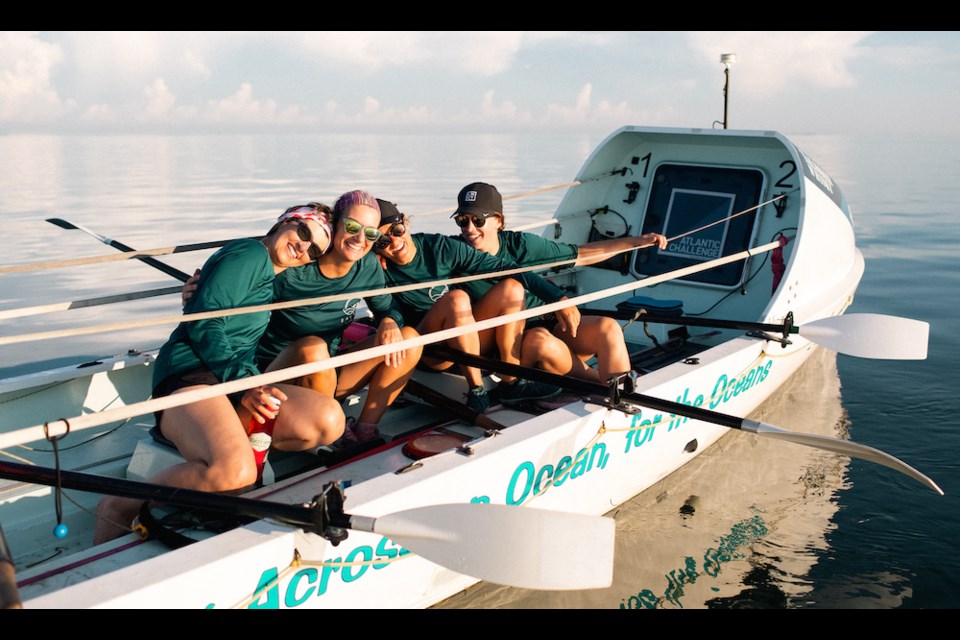On a sunny day driving through the village of Belcarra, you might see Isabelle Coté rowing across the placid waters of Bedwell Bay.
But don't get the wrong idea.
The SFU professor of marine ecology isn't just out for a casual jaunt in one of B.C.'s most beautiful harbours.
She's preparing for the journey of a lifetime — a 5,000 km row across the Atlantic Ocean with a team of marine scientists.
Called Salty Science, the team is made up of Coté, Chantale Bégin, Noelle Helder and Lauren Shae; they will be living and rowing together on a 28-foot boat for 40 to 60 days, rowing 24-hours a day in two-hour shifts, with two hours to rest.
'It's starting to get real'
Their goal is to cross the ocean from La Gomera in the Canary Islands to Antigua in the Caribbean in the Talisker Whiskey Atlantic Challenge — the world's toughest rowing race.
Alone at sea, without a support boat, the women will be at the mercy of the weather, high seas, hunger and exhaustion.
"It's starting to get real," said Coté, who admits she signed on to the trip without giving it a lot of thought.
However, she's extremely serious about the fundraising aspect of the challenge, which is to raise funds for charities focused on marine conservation education.
You can visit the Salty Science website to donate.
Coté said training future marine conservationists is important to save the ocean from over fishing, coastal development, pollution and climate change.
"We have many solutions but what we need is more people to implement them — and more people to come up with solutions," Coté said.
Training mind and body
Now, with just nine months to go before the Dec. 12 start of the race, Coté is training her body, as well as her mind, to be prepared for the gruelling endeavour.
She's learning navigation, and ocean survival, a requirement to participate, while also honing her lean body for the endurance test.
At 60 years old, Coté acknowledged she's looking forward to the challenge and proving that she can accomplish this feat.
"This is my way of battling age and preconceptions of women and aging," she said. "I believe I can do it."
A long-distance swimmer and trail runner, who has competed in Ultra races, Coté is no stranger to physical challenge.
But even Coté admits the December race will be demanding, both physically and mentally.
She must be able to work as part of a team, in a stressful and potentially dangerous situation: communication will be important, said Coté.
But fortunately, the women have worked with each other before, Bégin was Coté's PhD student, for example, and all are passionate about marine conservation, working or studying to save marine life, including kelp and coral beds.
'At one with the ocean'
All are trained divers and two are experienced sailors, said Coté, while the boat, "Emma," has made the crossing three times.
To prepare, the women will be working together for two months this summer, taking long rowing excursions on their boat, which is moored in Florida, including overnight for several days.
"In January, we did a 24-hour, overnight row, not super far from shore; we could still see the lights but it was pitch black.
"It was beautiful," she recalled, "We saw shooting stars."
When a pod of dolphins trailed the boat, Coté called it a magical experience, and she hopes to see more marine life during the Atlantic Challenge.
In fact, Coté, said the entire team agreed that if they saw dolphins they would ditch the race for awhile to be able to swim with the curious creatures.
"We are going to be at one with the ocean," said Coté.





